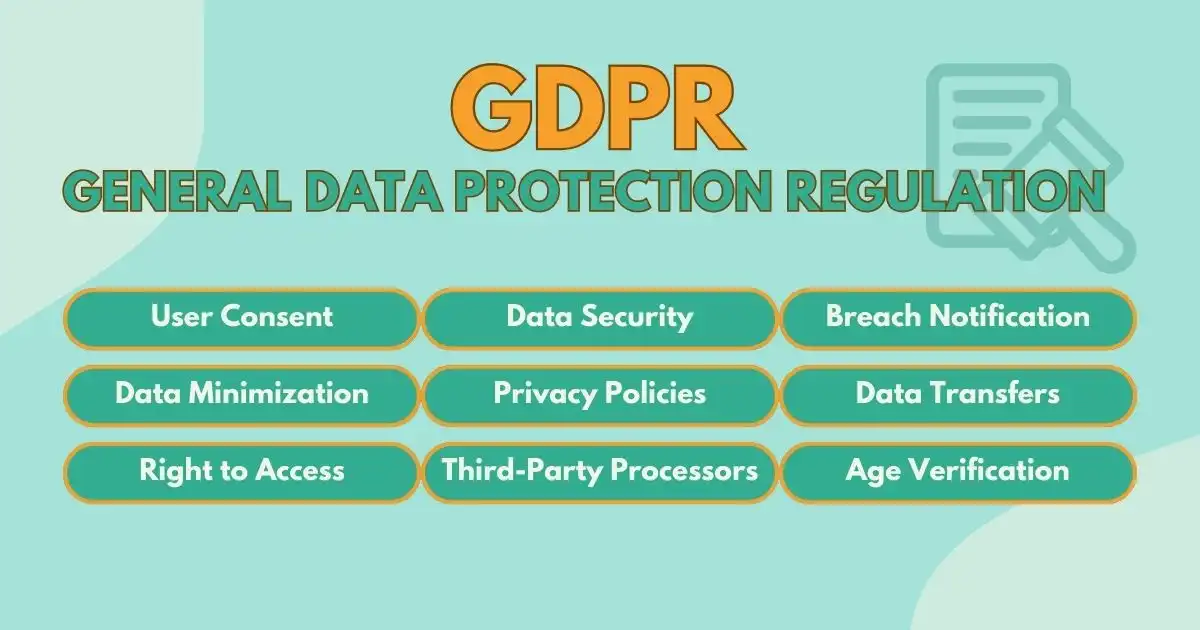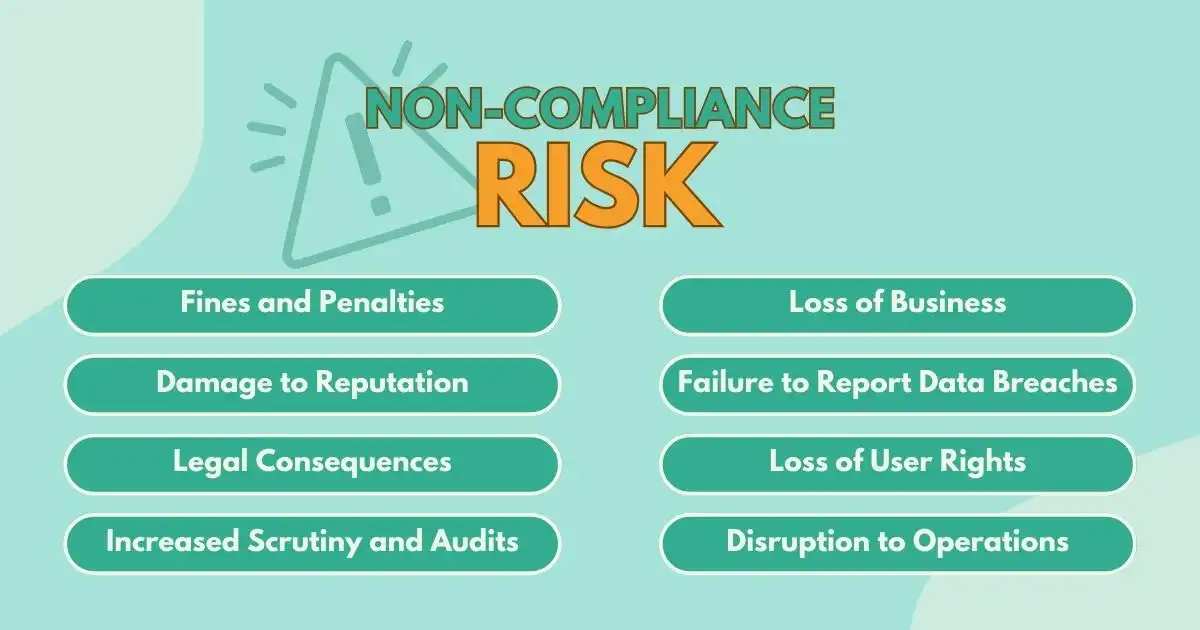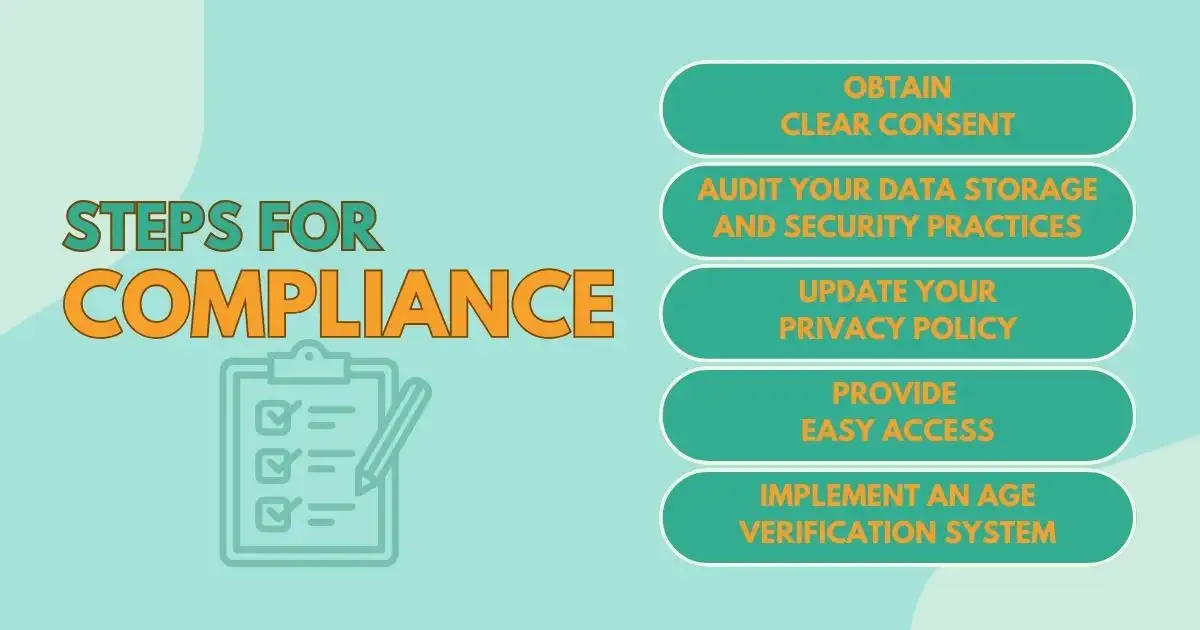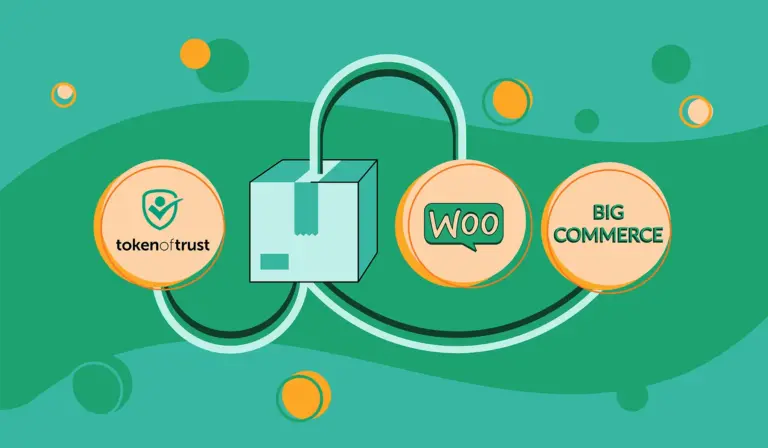Ensuring GDPR Compliance for Adult Sites
The adult content industry is subject to strict regulations that website administrators must follow to ensure GDPR compliance and effectively avoid risks. Specifically, these regulations include requirements for age verification solutions, data privacy, content guidelines, and more. In addition to legal concerns, businesses must also address other significant risks, such as fraud, data breaches, and reputational damage.
So, how can your adult content business stay compliant with these regulations? To answer that, we’ll outline the key steps you need to take in order to ensure your website complies with the law and at the same time minimizes potential risks.
What Is Adult Content?

Adult content includes material intended for adults, typically featuring explicit or mature themes such as sexual content, nudity, or other subjects unsuitable for children or minors.
Regulators strictly control adult content due to concerns about legal, ethical, and health-related issues, particularly regarding consent, privacy, and protecting minors from exposure to inappropriate material.
What Types Of Sites Are We Talking About?

The adult content industry includes a diverse range of websites and platforms that must comply with these regulations. Let’s explore some of the different types and what they offer:
- Content creator platforms: These platforms enable adult content creators to showcase and monetize their work, such as platforms for adult models, photographers, and producers.
- Adult webcam platforms: These platforms feature live webcam performances, interactive adult content, and virtual interactions.
- Pornographic websites: These platforms host explicit sexual content, adult videos, and pornography.
- Escort directories and escort agencies: Escort directories list and provide information about professional escorts, helping users connect with companions. Escort agencies act as intermediaries, offering a range of professional escort services.
Law That Protect You And The Industry You’re In

The General Data Protection Regulation (GDPR) is a European Union law that governs the collection, processing, and storage of personal data for individuals within the EU. While GDPR applies to all industries, it has specific implications for adult content websites, which often handle sensitive personal data. Here’s what adult content site operators need to know about GDPR:
Key GDPR Requirements for Adult Content Websites
User Consent
You must obtain explicit consent from users to collect and process their personal data. For adult content websites, this often includes consent for processing sensitive data, such as age verification, payment details, or any other personal information.
The consent process must be clear, informed, and unambiguous. Users must actively agree (e.g., by checking a box), rather than being assumed to consent by default.
Data Minimization
Under GDPR, you should only collect the minimum necessary data from users. For example, avoid collecting excessive personal details beyond what’s needed for age verification or other legal obligations.
Right to Access and Data Portability
Users have the right to access their personal data, request corrections, and even request data deletion (right to be forgotten). If a user requests data deletion, you must comply unless you have a valid legal reason to retain it.
Data Security
Adult content websites often collect sensitive information like payment details and personally identifiable data. As a GDPR-compliant website, you must implement strong security measures, such as encryption and secure data storage, to protect this information from unauthorized access, loss, or breaches.
Privacy Policies
Your website must feature a clear privacy policy that explains how you collect, process, store, and share user data. This policy must be easy to find and written in plain language.
Third-Party Processors
If you use third-party services (e.g., payment processors, age verification services, or analytics tools), you must ensure they are also GDPR-compliant. You need to establish clear agreements that specify how third parties will handle personal data.
Breach Notification
If you experience a data breach, you must inform users and relevant authorities within 72 hours of discovering the breach. This is especially critical for adult content sites, where breaches could expose highly sensitive user data.
Cross-Border Data Transfers
If you transfer personal data outside the EU, you must ensure the destination country or entity provides an adequate level of data protection, as defined by GDPR. For example, transferring data to the U.S. requires appropriate safeguards, such as Standard Contractual Clauses.
Age Verification
Since adult content websites must verify users’ legal age, you must comply with GDPR requirements for how you collect and store age-related data. This data is sensitive, so you must handle it securely, ensuring it’s stored only as long as necessary and not shared inappropriately.
Risks of Non-Compliance with GDPR

Not following the GDPR can lead to serious problems for businesses. Here’s what can happen if GDPR rules are ignored:
1. Fines and Penalties
The biggest consequence of non-compliance is financial penalties. Businesses can be fined up to €20 million or 4% of their global annual revenue, whichever is higher, for serious violations. Minor violations, like not keeping proper records or failing to report breaches, could still lead to fines of up to €10 million or 2% of revenue.
2. Damage to Reputation
GDPR violations can hurt a company’s reputation badly. Data breaches or mishandling personal data can lead to a loss of customer trust, lower brand credibility, and negative media coverage. This can damage relationships with customers and hurt sales.
3. Legal Consequences
Besides fines, businesses may face lawsuits from individuals whose data rights were violated. GDPR allows people to seek compensation for any harm caused by breaches. Regulators can also take legal action, forcing businesses to stop processing data or make changes to comply.
4. Increased Scrutiny and Audits
Companies that don’t follow GDPR might face more investigations and audits from regulators. This can interfere with daily operations and require businesses to make changes to become compliant, adding extra work and costs.
5. Loss of Business
If a business is found to be seriously non-compliant, it might lose access to the EU market. Some companies may block EU users from their websites or stop offering services in the EU altogether. This loss of access can significantly hurt revenue, especially for businesses that rely on EU customers.
6. Failure to Report Data Breaches
Under GDPR, businesses must report any data breaches within 72 hours. If they fail to do so, they can face additional fines and further legal action. Failing to notify regulators about a breach can make the situation worse.
7. Loss of User Rights
Non-compliance can also mean that customers’ data rights (like the right to access, correct, or delete their data) are ignored. If customers’ rights are violated, they can file complaints with authorities, leading to penalties.
8. Disruption to Operations
To meet GDPR requirements, businesses may have to change their data management practices, which can be expensive and time-consuming. Companies might need to update IT systems, hire new compliance staff, or invest in new software to stay compliant with the law.
Practical Steps for Compliance

- First, get clear consent from users before collecting sensitive data. Next, record the consent and make sure users can withdraw it at any time. Also, keep the process simple and clear so users understand their rights.
- Then, regularly check your data storage and security practices to make sure you’re following the right rules and to reduce the risk of data breaches. This will help you keep your data safe and prevent vulnerabilities.
- Also, update your privacy policy often to reflect GDPR rules and explain clearly how your site collects, uses, and protects sensitive data. Doing this keeps users informed and shows that you’re transparent.
- It’s also important to make it easy for users to request data deletion or changes, as required by their rights under GDPR. This helps you respect user rights and stay compliant with data protection laws.
- Finally, set up an age verification system that follows both local laws and GDPR rules for handling age data. Using a trusted system helps you stay legal while keeping sensitive user information safe.
- Use a reliable age verification app, like Token of Trust, to help you comply with adult content laws and avoid penalties.
Achieve Full GDPR Compliance with Token of Trust
Adult content websites must maintain compliance with GDPR and other regulations. Token of Trust provides solutions that keep your site secure, compliant, and user-friendly. We specialize in identity verification, data archiving, and privacy regulations—key components for ensuring compliance. Our services help website administrators streamline the verification process, enhance data security, and achieve full legal compliance. Start today with a free consultation or demo to see how we can simplify your compliance journey.






